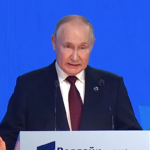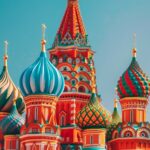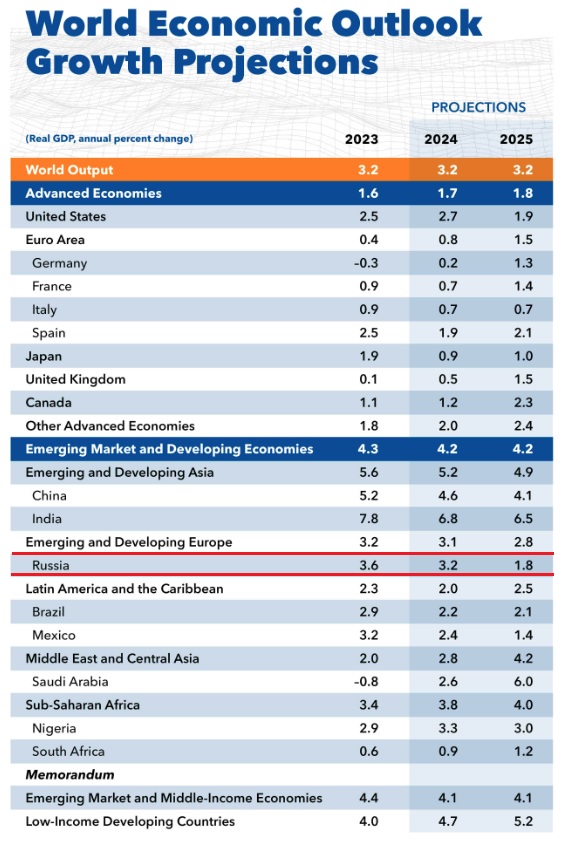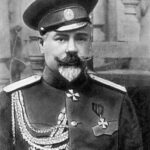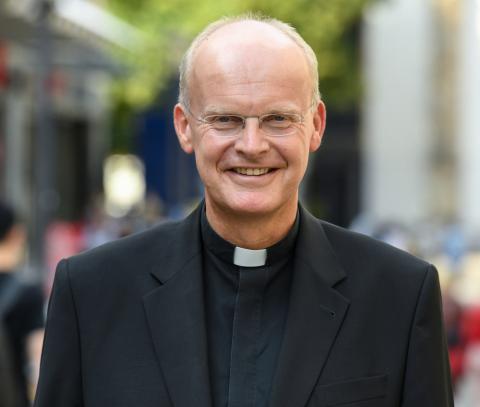“The Germans long before …14 sought to destroy the unity of the Russian tribe forged in hard struggle. For this purpose they supported and boosted in the south of Russia a movement that set itself the goal of separation of its nine provinces from Russia, under the name of Ukraine. The aspiration to tear away from Russia the Little Russian branch of the Russian people has not been abandoned to this day. XY and his companions, the former protégés of the Germans, who began the dismemberment of Russia, continue to carry out their evil deed of creating an independent “Ukrainian state” and fighting against the revival of the United Russia (Единая Россия).”
Sounds familiar? This remark was made more than a hundred years ago by General Anton Denikin, one of the four most recognizable leaders of the anti-Bolshevik Russia during the civil war of 1917-1921. The other three were Alexander Kolchak, Nikolai Yudenich and Pyotr Wrangel. General Anton Denikin fought for a few years in the south of the former Russian Empire against the Red Army, but after some initial successes, he was forced to leave his fatherland. It was at that time that the West was very much interested in disrupting Russia. The two revolutions – the first one, often referred to as the bourgeois revolution, took place in February and the second one, the Bolshevik revolution, took place in October 1917 – were sparked off with the support and blessing of the Western powers. The British had a hand in dethroning the tsar in February 1917, the Germans substantially supported the Bolshevik party in October 1917: the leaders of the coup d’état that was to take place in October were transported in a sealed train from Switzerland across Imperial Germany to Sweden, from where they made their way to Petrograd (that’s how in 1914 the German-sounding Saint-Petersburg was renamed after Russia began the hostilities against Germany). Americans, too, chipped in. While Vladimir Lenin enjoyed German protection, travelling across Germany, Leon Trotsky, having spent a couple of years in New York with his family and two sons, was financed to cross the Atlantic and be on time in Petrograd to disrupt the Russian state. It was not only the financial and political support that helped the revolutionaries of all persuasions to bring about the collapse of the empire: national or ethnic resentment was also exploited, with the Germans advancing the idea of a Ukrainian nation as separate from Russians.
There were a number of Ukrainian leaders at that time, with Symon Petliura being one of the most recognizable. He was backed by the Germans, he was later backed by the reborn Polish state. The Polish troops together with some of his Ukrainian units advanced towards Kiev and even occupied it for a week or two in 1920. Quite a Maidan, was it not, even if short-lived? These are the events that General Anton Denikin referred to in the text at the opening of this article. The full date the part of which we intentionally deleted was 1914, while the letters XY stand for no less a person than Symon Petliura.
In 2014 we saw a kind of historical repeat. The Western powers made themselves felt in Ukraine, but especially in Kiev, and caused the legitimate president to flee the country. Also, a crawling civil war commenced in the Donbass, while Russia in response to all these events reclaimed the Crimean Peninsula, all of which led to the war that broke out eight years later. Today Anton Denikin might write something like this:
“The collective West long before 2014 sought to destroy the unity of the Russian tribe forged in hard struggle. For this purpose they supported and boosted in the Ukraine a movement that set itself the goal of antagonizing Ukrainians and Russians. The aspiration to tear away from Russia the Little Russian branch of the Russian people has not been abandoned to this day. Volodymyr Zelensky, Yulia Tymoshenko, Leonid Kravchuk, Petro Poroshenko, Vitalii Klichko (you name them) and their companions, the protégés of the West, who began the dismemberment of the Soviet Union, continue to carry out their evil deed of creating an independent “Ukrainian state” and fighting against the revival of the United Russia (Единая Россия).”
by the way, the phrase United Russia (Единая Россия) that Anton Denikin employed overlaps one to one with the name of the “Putin” party, which holds power in this largest post-Soviet republic.
This time, too, it is the United States, Germany and Great Britain along with Poland that are busy playing Ukrainians off against Russians. This time, too, they have found present-day Petliuras ready to serve them. Today, too, war is being waged, and today, like yesterday, it looks like Ukraine is on the losing end. So it goes. Will we be witnesses to yet another historical repeat in… 2114/2124?
During World War Two, after the Germans had attacked the Soviet Union, they approached General Denikin, who lived at that time in France, with a proposal of backing the Third Reich against the Bolsheviks. Anton Denikin was very much opposed to the Bolshevik rule in Russia, which is putting it mildly. Yet, he did not for a moment think it right to ally himself with the enemies of Russia, even Red Russia. Anton Denikin flatly refused and warned those Russians – and especially Ukrainians – who were willing to serve the Third Reich against the Bolsheviks. Anton Denikin tried to convince them that they were going to be miserable tools at the hands of the Germans, to be discarded the moment they were not needed.
It is said that the civil war in the Soviet Union did not end in 1922 – when Denikin, Wrangel and Yudenich were forced out of Russia, while Kolchak was taken prisoner and put against the wall – because the civil war in the form of resentment and a deep division running through Soviet society festered. It only ended when the Soviet Union was attacked by Germany. It was only then that the overwhelming majority of Soviet citizens of whatever political persuasion rallied around the Soviet leaders to defend Russia. Has not the same been happening since 2022 in Russia? Even those Russians who did not hold Vladimir Putin in high regard changed course and rallied around him. War and especially the resultant hardships were supposed to turn the people against the Kremlin: as it is, the opposite is true. Sure, there are some who have betrayed their country – there were some also during World War Two, like General Vlasov – but the majority have expressed their unwavering support for the leadership. Does anyone learn anything from the past? Does anyone study the past?

